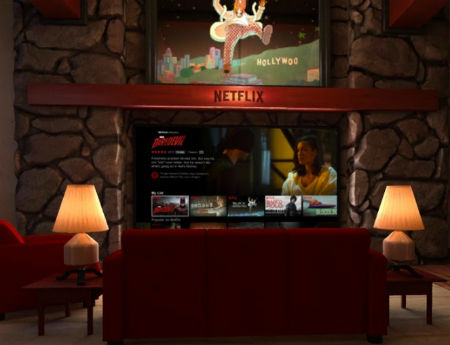Netflix is Most Used VR App: Study
The smarter way to stay on top of the multichannel video marketplace. Sign up below.
You are now subscribed
Your newsletter sign-up was successful

Virtual reality is still at the nascent phase with respect to consumer adoption, but Netflix’s VR app has climbed atop the heap in terms of usage, according to a study from Magid conducted in conjunction with the VR/AR Insights Consortium.
RELATED: A Deeper Look at the Netflix VR Environment
The study, based results tallied from about 2,000 U.S. consumers in March, found that 22% of VR users have watched Netflix VR. Minecraft VR, at 20%, was the next most widely used virtual reality app. About 19% of VR users have also watched wither live NBA or NFL games in the format, according to the study.
RELATED: VR Market Still Set for ‘Modest’ Growth in 2017 (subscription required)
The VR/AR Consortium, which also includes Turner, Warner Bros. and The VR Society, also released other market-tracking data:
-One-third of all U.S. adults have used a VR device. Of which, 23% have used a mobile-connected VR platform (such as the Samsung Gear VR and Google Daydream View), versus 16% that have used a console VR device (i.e. the PlayStation VR), versus 8% for PC-connected VR platforms (such as the Oculus Rift and HTC Vive).
-The U.S. market of VR owners and “intenders” stands at 44 million.
The smarter way to stay on top of the multichannel video marketplace. Sign up below.
-Seeing is believing, as 50% of those who have tried a VR headset reported “loving” the experience on a PC or console device, while 90% reported “liking” it on a high-end PC or console headset. For mobile VR, 85% said they “liked it,” and 44% said they “loved it.”
-86% of those that have used a console or PC headset and 84% of those who have used a mobile VR set-up would recommend the device to others.
-51% said they believe VR will change the way people watch TV shows and movies.
The results of the study represent the first wave of a bi-annual consumer experience tracking study conducted by the VR/AR Consortium that looks at VR and AR awareness, interest, experience, purchase intent and brand awareness. The group plans field those studies over a three-year period.
